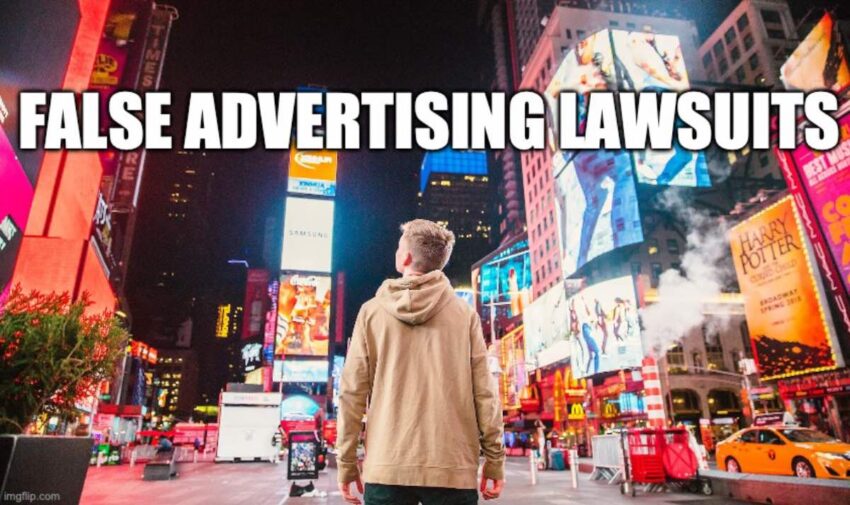False advertising is a deceptive practice that can mislead consumers and lead to potentially harmful consequences. The act of false advertising encompasses a wide range of tactics. From outright lying about a product’s features to subtly manipulating terms to create a false perception.
One of the ways consumers can fight back against such deceptive practices is through a false advertising lawsuit. Let’s examine what these lawsuits entail, how they can be initiated, and what consequences companies may face as a result.
What Constitutes False Advertising?
False advertising can take various forms. Some common examples include:
- Misleading Descriptions: This involves presenting inaccurate or misleading information about a product or service, such as falsely claiming that a product has certain features or benefits that it does not.
- Deceptive Pricing: This involves hiding additional charges or fees that drastically increase the final price a consumer pays, contrary to the advertised price.
- Deceptive Measurements or Quantities: This involves misleading consumers about the size or quantity of a product, often by using different standards of measurement or deceptive packaging.
- False Comparisons: This involves comparing a product or service to a competitor’s in a misleading or deceptive way, often focusing only on certain attributes while ignoring others.
- Deceptive Guarantees or Warranties: This involves offering a guarantee or warranty without specifying the remedy, then refusing to provide relief to consumers.
Legal Regulations Against False Advertising
False advertising is regulated by both state and federal laws. Familiar with Federal Trade Commission (FTC) and the Food and Drug Administration (FDA? Both are among the federal agencies that enforce these laws.
The FTC prohibits “unfair or deceptive acts or practices in or affecting commerce.” While the FDA regulates labeling of pharmaceutical and nutritional products. State laws, on the other hand, vary but generally prohibit deceptive advertising and misleading labeling practices.
Taking Legal Action: The False Advertising Lawsuit
Consumers who believe they have been victims of false advertising can initiate a lawsuit against the offending company. The process involves proving that the advertisement was false or misleading, that the falsity was “material” or significant. Also that the consumer relied on the false advertising when purchasing the product or service.
Success in a false advertising lawsuit can lead to monetary compensation for the consumer. This can either be actual damages suffered or a statutory penalty, depending on the specific laws of the state.
Consequences for Companies
Companies found guilty of false advertising can face severe penalties. These can range from criminal penalties for fraud to civil penalties imposed by government agencies.
In addition to these penalties, companies may also be ordered to cease the false advertising campaign and make correct disclosures to consumers. In some cases, they may also be required to pay damages to consumers affected by the false advertising.
One notable example is the Bench Craft Company Lawsuit for deceptive marketing tactics. The legal proceedings involved various stages including the filing of a class-action lawsuit, the defense by Bench Craft Company, and settlement negotiations.
Negative Perception of Industry
False advertising is a serious issue that can harm consumers and distort the marketplace. A false advertising lawsuit is one of the tools consumers have at their disposal to fight back against these deceptive practices.
By understanding the laws and regulations surrounding false advertising, as well as the process and potential consequences of a lawsuit, consumers can better protect their rights and make more informed decisions.

